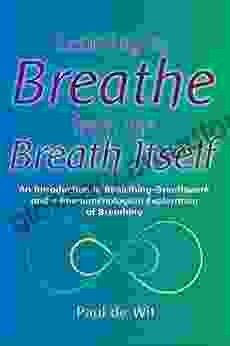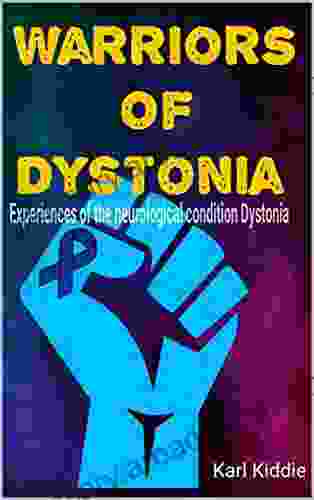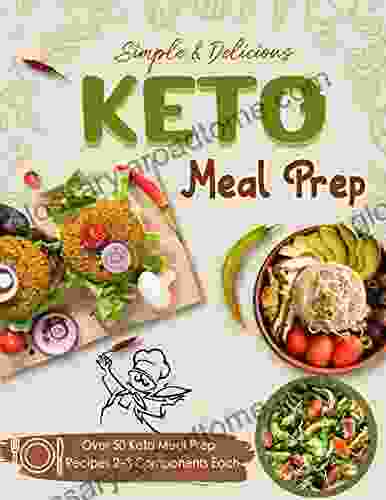Practical Nutrition and Hydration for Dementia-Friendly Mealtimes: Empowering Caregivers and Enhancing Well-being

: The Significance of Nutrition and Hydration for Dementia Care
Dementia, a progressive cognitive disFree Download, presents unique challenges in providing adequate nutrition and hydration. Individuals with dementia experience changes in taste, smell, and appetite, as well as cognitive and physical impairments that affect their ability to eat and drink effectively. These factors can lead to malnutrition, dehydration, and other health complications, further compromising their well-being and quality of life.
5 out of 5
| Language | : | English |
| File size | : | 1030 KB |
| Text-to-Speech | : | Enabled |
| Enhanced typesetting | : | Enabled |
| Screen Reader | : | Supported |
| Print length | : | 266 pages |
Understanding the nutritional needs of individuals with dementia and implementing effective hydration strategies are crucial for caregivers and healthcare professionals. This guide offers a comprehensive overview of practical and evidence-based approaches to ensure optimal nutrition and hydration for individuals with dementia, fostering their health, dignity, and overall well-being.
Chapter 1: Understanding Nutritional Needs in Dementia
This chapter delves into the specific nutritional requirements of individuals with dementia. It explores the changes in metabolism, energy expenditure, and digestion that occur with the progression of the disease and provides guidance on tailoring meal plans to meet these evolving needs.
- Nutritional Assessment: Techniques for evaluating nutritional status, including dietary intake monitoring, anthropometric measurements, and biochemical testing.
- Calorie and Protein Requirements: Determining the appropriate calorie and protein intake based on individual needs and disease stage.
- Essential Nutrients: Understanding the vital role of vitamins, minerals, and other essential nutrients in maintaining physical and cognitive health.
- Hydration and Fluid Management: Strategies for ensuring adequate hydration, including monitoring fluid intake, offering preferred beverages, and recognizing signs of dehydration.
Chapter 2: Creating Dementia-Friendly Mealtime Environments
Chapter 2 emphasizes the importance of creating a supportive and stress-free mealtime environment that promotes dignity and encourages participation. It offers practical tips for adapting dining areas and meal preparation to accommodate cognitive and physical impairments.
- Sensory Considerations: Optimizing lighting, noise levels, and food presentation to enhance sensory experiences and reduce distractions.
- Adaptive Equipment: Using specialized utensils, assistive devices, and non-slip surfaces to facilitate self-feeding and promote independence.
- Mealtime Routines: Establishing regular mealtimes, providing verbal cues, and minimizing distractions to create a predictable and structured environment.
- Socialization and Engagement: Encouraging conversation, offering assistance, and providing opportunities for social interaction during mealtimes.
Chapter 3: Practical Feeding Assistance Techniques
This chapter focuses on providing practical guidance for caregivers and healthcare professionals on assisted feeding techniques. It covers different methods for supporting individuals with eating difficulties, ensuring nutritional intake while preserving dignity and respect.
- Positioning and Support: Proper positioning and posture to enhance swallowing and prevent choking.
- Spoon-Feeding Techniques: Effective methods for spoon-feeding, including the use of adaptive utensils and techniques to minimize spillage.
- Cup-Drinking Assistance: Strategies for supporting individuals in drinking from cups, including modifications to cup design and the use of assistive devices.
- Texture Modification: Modifying food textures to meet the needs of individuals with swallowing difficulties, enhancing palatability and reducing choking risks.
Chapter 4: Hydration Strategies for Individuals with Dementia
Chapter 4 explores the challenges and strategies for maintaining adequate hydration in individuals with dementia. It provides practical tips for encouraging fluid intake, recognizing signs of dehydration, and managing hydration-related complications.
- Fluid Preferences: Identifying and offering preferred beverages to increase fluid intake.
- Hydration Reminders: Using visual cues, verbal prompts, and assistive devices to remind individuals to drink regularly.
- Dehydration Recognition: Monitoring for signs of dehydration, such as dry mouth, reduced urine output, and cognitive changes.
- Alternative Hydration Methods: Exploring alternative methods of hydration, such as intravenous fluids or tube feeding, when necessary.
Chapter 5: Nutritional Support and Intervention
Chapter 5 discusses the role of nutritional support and intervention in managing malnutrition and other nutritional issues in individuals with dementia. It reviews the use of nutritional supplements, fortified foods, and enteral or parenteral nutrition when dietary intake is inadequate.
- Nutritional Supplements: The use of vitamins, minerals, and other supplements to address specific nutrient deficiencies.
- Fortified Foods: Enhancing the nutritional content of foods by adding nutrients, such as protein supplements or vitamin-fortified milk.
- Enteral Nutrition: Providing liquid nutrition directly into the stomach or small intestine through a feeding tube.
- Parenteral Nutrition: Delivering nutrients directly into the bloodstream through a vein when enteral feeding is not possible.
: Empowering Caregivers and Enhancing Well-being
This guide concludes by emphasizing the importance of empowering caregivers and healthcare professionals with the knowledge and skills to provide optimal nutrition and hydration for individuals with dementia. By implementing practical strategies, creating supportive environments, and addressing the unique needs of each individual, we can promote their well-being, maintain their dignity, and enhance their quality of life.
Remember, providing nutritious and enjoyable mealtimes for individuals with dementia is not merely a task but an act of love and care. When we prioritize their nutritional needs, we not only sustain their physical health but also nurture their cognitive abilities, emotional well-being, and overall quality of life.

5 out of 5
| Language | : | English |
| File size | : | 1030 KB |
| Text-to-Speech | : | Enabled |
| Enhanced typesetting | : | Enabled |
| Screen Reader | : | Supported |
| Print length | : | 266 pages |
Do you want to contribute by writing guest posts on this blog?
Please contact us and send us a resume of previous articles that you have written.
 Book
Book Novel
Novel Page
Page Chapter
Chapter Text
Text Story
Story Genre
Genre Reader
Reader Library
Library Paperback
Paperback E-book
E-book Magazine
Magazine Newspaper
Newspaper Paragraph
Paragraph Sentence
Sentence Bookmark
Bookmark Shelf
Shelf Glossary
Glossary Bibliography
Bibliography Foreword
Foreword Preface
Preface Synopsis
Synopsis Annotation
Annotation Footnote
Footnote Manuscript
Manuscript Scroll
Scroll Codex
Codex Tome
Tome Bestseller
Bestseller Classics
Classics Library card
Library card Narrative
Narrative Biography
Biography Autobiography
Autobiography Memoir
Memoir Reference
Reference Encyclopedia
Encyclopedia John T Long
John T Long Gerard M Crawley
Gerard M Crawley Frederic Kerrest
Frederic Kerrest Garry Disher
Garry Disher Ginger Vieira
Ginger Vieira James J Racht
James J Racht Georgia Coleridge
Georgia Coleridge Gianni Francione
Gianni Francione Sylvia E Di Pietro
Sylvia E Di Pietro Gabrielle Bernstein
Gabrielle Bernstein George A Giuliani
George A Giuliani Mike Byrne
Mike Byrne Frantz Paulin
Frantz Paulin Friedy Luther
Friedy Luther Madison Fuller
Madison Fuller Gautam Sen
Gautam Sen Tim Seeberg
Tim Seeberg George Makepeace Towle
George Makepeace Towle Robin Currie
Robin Currie Sharon Reier
Sharon Reier
Light bulbAdvertise smarter! Our strategic ad space ensures maximum exposure. Reserve your spot today!

 Shawn ReedDigital System Design With Microcontrollers: Unleashing the Power of Embedded...
Shawn ReedDigital System Design With Microcontrollers: Unleashing the Power of Embedded... Stan WardFollow ·6.4k
Stan WardFollow ·6.4k John Dos PassosFollow ·16.4k
John Dos PassosFollow ·16.4k Troy SimmonsFollow ·19.1k
Troy SimmonsFollow ·19.1k Brian BellFollow ·10.5k
Brian BellFollow ·10.5k Mario Vargas LlosaFollow ·4k
Mario Vargas LlosaFollow ·4k Larry ReedFollow ·17.8k
Larry ReedFollow ·17.8k T.S. EliotFollow ·13k
T.S. EliotFollow ·13k Chase SimmonsFollow ·16.3k
Chase SimmonsFollow ·16.3k

 Chinua Achebe
Chinua AchebeLetters to My Bipolar Self: A Journey of Hope, Healing,...
Bipolar disFree...

 John Parker
John ParkerLearning to Breathe from the Breath Itself: A...
In the whirlwind of modern life, finding...

 Beau Carter
Beau CarterExperiences In Psychoanalysis: A Journey into the...
Are you fascinated by the...

 George Hayes
George HayesExperiences Of The Neurological Condition Dystonia
Navigating the Labyrinth of a Complex...

 Jerome Powell
Jerome PowellOver 50 Keto Meal Prep Recipes: Your Essential Guide to...
Welcome to the world...
5 out of 5
| Language | : | English |
| File size | : | 1030 KB |
| Text-to-Speech | : | Enabled |
| Enhanced typesetting | : | Enabled |
| Screen Reader | : | Supported |
| Print length | : | 266 pages |











